This shouldn’t take too long.
I’ve only got about fifty-seven hours worth of opinions about puns. I’ve even been on New Hampshire Public Radio arguing with an editor of The Atlantic Monthly in a mock debate about whether puns are good or bad.
My position: bad.
Basic reason: opportunity cost.
I’ll keep it simple. In the area that the pun occupies—whether that’s air time, or pixels, or valuable space on a poster or print ad or billboard—you could have said something persuasive.
Something informative—it can still be clever, or thought-provoking. But you could have used that space for something that begins to change people’s minds. Here’s just one example of a billboard that could have employed a pun but instead chose to say something that begins to change people’s minds:
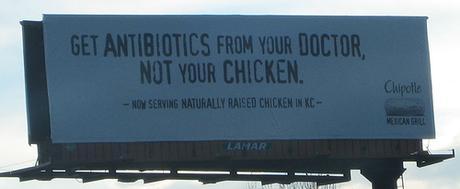
So yeah. That’s somewhat old, and it began seeping into people’s brains, and it started a revolution with Chipotle at the front of the charge. You have very few opportunities to influence people, to help them form the opinion you want them to have.
What a waste to fritter away that opportunity with meaningless wordplay.
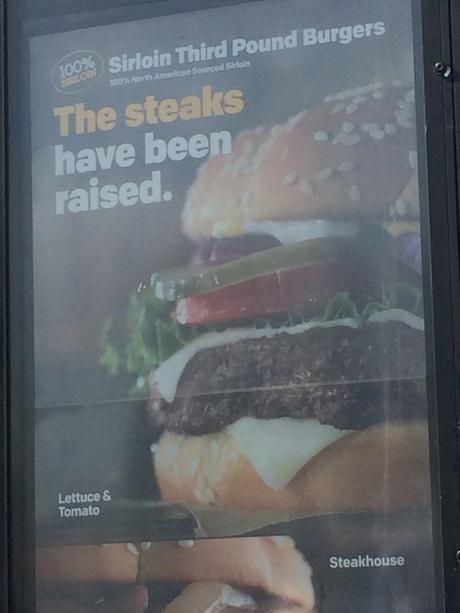
And yes, it is meaningless.
Steak is spelled the same as stake!
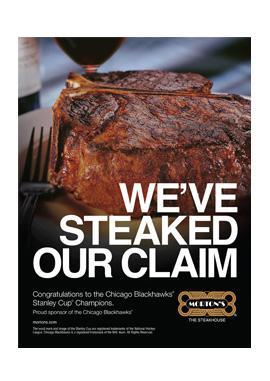
How are we supposed to react to that?
That’s my legit problem with puns. At best, all they are is good-natured.
They look like they’re relevant: after all, they tie in a word related to what you want people to think, usually, and they sometimes seem to communicate an important claim: McDonald’s and Morton’s have raised the stakes in the game of quality beef. But we know—a four-year-old would know—that it’s simply convenience that it appears to have meaning. It’s a coincidence.
A coincidence of language.
It’s not that interesting to point it out. And we have nothing, no fact, no belief, no perspective to retain from reading that. All we have is, “They seem good-natured and kind of corny.”
Also, there’s the groaner-factor. This exists only to make you recognize the coincidence and groan along good-naturedly:
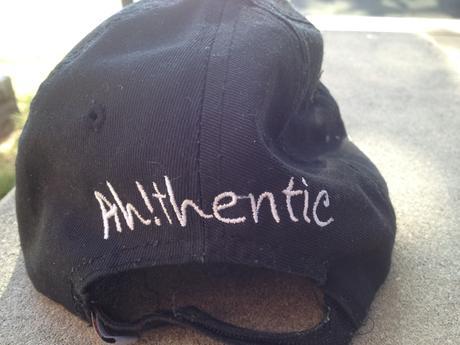
And it doesn’t affect your opinion of Marco’s Pizza even a little bit.
Could they have put something convincing on there? Jimmy John’s might have mentioned they were Freaky Fast, and we’d think about that, and retain it, and begin to believe it. There has been no change, not the slightest alteration in your opinion of Marco’s after being exposed to that hat.
That’s my problem with puns.
Also, they make you sound goofy and giddy sometimes. I think this makes Donatos sound like they’ve had too much Mountain Dew and they’re carried away with off-putting mirth, shouting something only they think is hilarious:
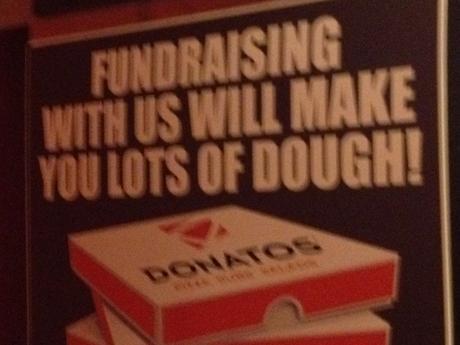
Check out that exclamation point. That one got them all worked up!!!!!! Pardon me as I refill my Mountain Dew again!!!!!!!!!! Maybe I overthink it sometimes. But usually puns give people permission not to think at all.
You might as well put “Copy goes here,” and not waste the time. Your pun has about the same affect as Lorem Ipsum Dolor.
